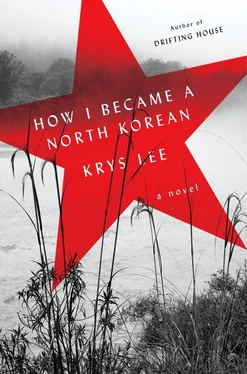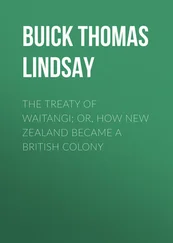He smiled at me, a thin, sympathetic smile, and I saw that he was afraid for me.
“We have great love and respect for the Great General,” I said. “Our entire family does.”
I began mourning what I sensed would be the end. Already the house no longer felt like ours. When our lives were dismantled and taken apart, I wondered who would take my abeoji ’s grand piano. Or my eomeoni ’s movie projector. Which anonymous bureaucrat was eyeing which appliance? What else had the stranger burned? I had so many questions that would never be answered. I could only trust him; I had no choice but to trust.
“Of course, of course,” the man said. “I know all about your family.”
I didn’t like that. A blanket of silence fell over us. I looked outside at the street, still icy where our building’s shadow fell, and wished my parents were home.
“Look, I have a few questions for you. Again, no one’s in trouble. When is your sister coming back?”
Had he read in a file that I had a sister, or was that something he had already known?
He continued. “I’m sure you have studying to do. My son is a good student, he has a head for numbers. You?”
I nodded, and some words fell out of my mouth as terror spread like alcohol through my body. All the abstractions I had seen as someone else’s life became real to me.
He cracked the window open, letting the smoke and bitter embers and the scent of burned paper out. A trickle of cold crisp air entered, a girl’s thin high call.
He asked me rote questions about my eomeoni and abeoji as if he was reading from a script. Then he wrote on a notepad and held it up. I’m here to help you, it read. Before I could be sure that I had seen it correctly, he rested the note in the still-smoldering ashes and it shrank and disappeared.
• • •
I ran past all that I knew and all that I would forget, past the security guard who suddenly seemed there to keep us in more than to keep others out. I ran, coatless, my fingers icy without gloves, fleeing the image of the man who had left before me. I ran from my brightly lit neighborhood and into the darkness of tram stops and building-size portraits of the smiling Great Leader, past the city’s statues and hotel towers, stopping only for a random checkpoint. Ran, feeling a giant beast bearing down on me, though when I turned back there was nothing there. I was afraid of staying in Pyongyang, afraid of leaving. I wished for a power outage to pitch the city into a great unfurling darkness. This was my home, the center of my world, and I couldn’t imagine myself banished from it.
Dusk became evening, the time my girl and I had planned to meet at the Pothong River.
I waited for Myeonghui. The wind chilled my sweaty skin as I watched the few out by the riverbank striding back and forth for exercise. This daily life was something that might no longer be mine. My hands knotted tightly together. I was impatient to see Myeonghui. I thought I loved her.
I waited by our designated weeping willow and hummed a few bars of “Whistle,” the entire time listening for her. I heard her before I saw her, the way her school uniform made a fine woolen rustle, and her bob swished as she laughed a mild, honest laugh, and shook her head my way as if to say, Not tonight. Though tonight might be all I had left with Myeonghui, whose family had left Japan years ago to return to our homeland. I pulled her closer to my side before the moon could peek out from the clouds and illuminate us to the others.
She swiftly put an arm’s width of space between us with her habitual modesty. “You’re usually so reasonable, dongmu .”
I was as intimate with Myeonghui as I had ever been in the time we knew each other. Along the winding river path, I breached the distance between us to brush her wrist, as if touching her would help me recover the order that she was for me. Everything about her was what my family wasn’t: relentlessly formal, a clarity to her quietness that helped me hear her heavy skirt sway like a bell. I wonder what she meant to me, if she had mattered to me only because I knew her family’s ties to Japan would have enraged my abeoji, whose own abeoji had been murdered by Japanese colonialists. Anyone with Japanese associations was considered unsafe, suspicious.
Again, she moved out of my reach. Only she was betrayed by her eager left foot skipping ahead of her eager right, her breath catching in a rhythm common to those who had come from Japan, the trace of the past echoing on her tongue.
That night there was no family, no committee duties, no small group studies, and few words spoken between us, which meant fewer lies to protect each other and our families. There was only the time given us. We avoided the occasional passing bike, a drunk man stumbling home. The distant conversations of other strollers murmured around us like restless ocean waves, overlapped and blurred into each other, until for a moment I heard only our small voices ballooning in the emptiness.
“You’re so lovely,” I said. It was true, though in the dark she was a faint outline, an occasional flash of skin so bone white her arms gleamed. You didn’t have to see beauty to know it was there.
She said, “You’re so quiet tonight… so strange…”
I turned toward her voice. She sensed the fine difference between my normal quiet and brooding, and knew me without knowing anything about me.
“We’ve known each other so long now, and it seems wrong that we know so little about each other. You feel so unreal in the dark, as if you were never there.”
“No, no, ireobseubnida .” She laughed, her hair flying in the air as she shook her head. “We have time.”
She swung her slender arms from side to side, her faith in the future intact. Again that pause, and in it began the kinds of silent conversations that none of us dared to have with each other. In those imagined conversations, she told me what it meant to have Japanese soil in her. I confessed what I feared might be happening to my family.
I watched her whirl and embrace the moon’s silhouette, and for the first time I thought she must carry with her an unlived life and the sadness of her family.
I asked, “How did it feel on… on the last day of your life?”
“ Dongmu! You’re so morbid, thinking about death already.”
“I don’t mean dying — not exactly. But when your family… left. Being dead, but not dead. Only… gone.”
Her hands dropped and her voice took on a clipped formality. “I don’t understand you today.”
I thought about all the things that could go wrong when you tried to cross into China.
I said, “Too much of us can’t be measured. When Abeoji plays the piano, each time he plays, the phrasing is more or less the same. Recognizable, is what I mean. You can listen to one recording and compare it to another, but it’s the same composition. It’s not like people — we’re so different from moment to moment that we wouldn’t be recognizable if we didn’t have this body and voice, these enormous fingerprints.”
I kept speaking nonsense, anything to defend myself from my thoughts. Were traitors actually traitors, or were they wronged, betrayed, or just unlucky? My laugh grew into painful, unstrung sounds.
Myeonghui pulled away. “Someone might hear,” she said with the same pleasant, even tone.
Without warning, she added, “ Dongmu, don’t do anything you can’t reverse. It’s best you not say anything more.”
I weighed whether to return home or run away, though how and to where was beyond my ken. I thought of my dongsaeng, only thirteen, at home alone and waiting until I returned to have dinner. I was afraid. For the first time, I pulled Myeonghui close to me with my arm around her waist the way Jack had done to Rose on the sinking Titanic. Like a girl raised properly, she resisted this first embrace, then gradually gave in. Of course this must be love, I thought, giving my nostalgia and fear and longing for all I was about to lose a name.
Читать дальше












